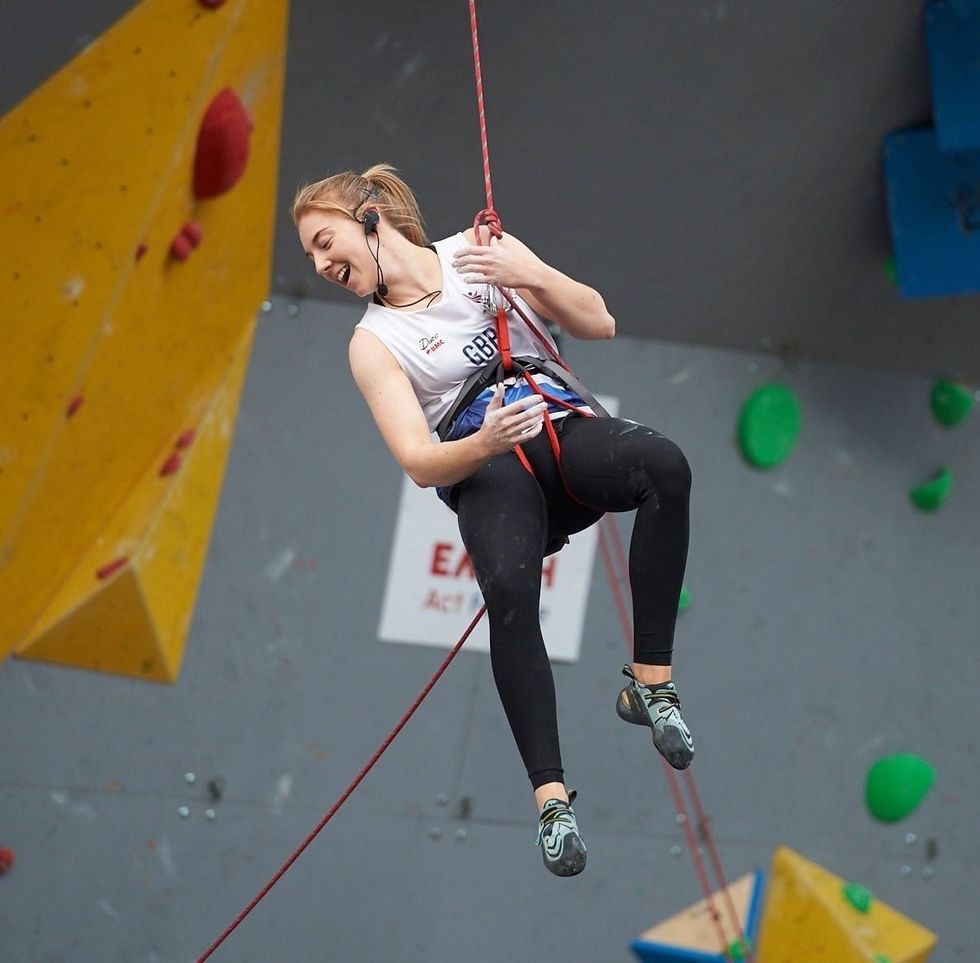Abigail Robinson is an athlete who competes on the GB paraclimbing team. Robinson suffers from Stargardt macular dystrophy (Stargardt disease), as described by her.
"My visual activity is 1/60, so I have to be 1 metre away from the chart in an opticians office to read the biggest letter. My peripheral vision is not affected, which is good for special awareness and picking up movement. It's my central vision that's responsible for colour and detail that is affected, and I have a big blind spot in the middle of my vision."
However, she hasn't let her disability stop her. Robinson has climbed ever since she was thirteen years old, even after her diagnosis at the age of seventeen, she was determined to do what she loved. Robinson competes in the B2 category, which is for people with a visual acuity of 1/60-2/60 or a visual field of less than five percent. After joining the Great British paraclimbing team in 2018, Robinson has won the World Cup in 2018, the paraclimbing masters in 2019, and is the 2-time reigning world champion in her category.
Not only has she exceeded in her competitive career, Robinson yet again breaks boundaries in her professional field. Her visual impairment has not prevented her from studying Digital Media at university. She is in her final year of study, has completed a year in industry, and has designed her personal website.
Robinson has also been nominated for the Rebel women of Sunderland campaign, in her home city. Robinson stands alongside activists, politicians, and other athletes as a part of Heritage Open day to celebrate the achievements of women from the city.
After speaking to her, I asked if there was any advice she would give to young people struggling with disabilities or having to face challenges in their own life. This was her response;
"It's very easy to feel alone and isolated when you have a disability, but there are more people out there than you think. There are tonnes of disabilities, like mine, that are totally invisible. I found it very easy to refuse any support and shy away from getting involved in any kind of disabled sport or organisations because I wasn't quite ready to admit that my condition affected me all that much. But, accepting support is in no way admitting defeat. It's allowed me to do all the things I used to with ease and comfort and now I feel more able than ever. Getting involved in disabled sports and organisations has allowed me to meet some truly inspirational people, I've never felt so empowered or encouraged to step out of my comfort zone and push to my limits."




 Energetic dance performance under the spotlight.
Energetic dance performance under the spotlight. Taylor Swift in a purple coat, captivating the crowd on stage.
Taylor Swift in a purple coat, captivating the crowd on stage. Taylor Swift shines on stage in a sparkling outfit and boots.
Taylor Swift shines on stage in a sparkling outfit and boots. Taylor Swift and Phoebe Bridgers sharing a joyful duet on stage.
Taylor Swift and Phoebe Bridgers sharing a joyful duet on stage.













